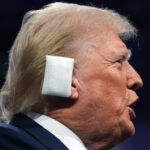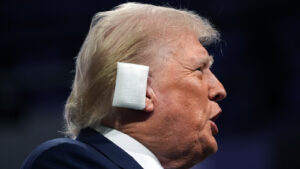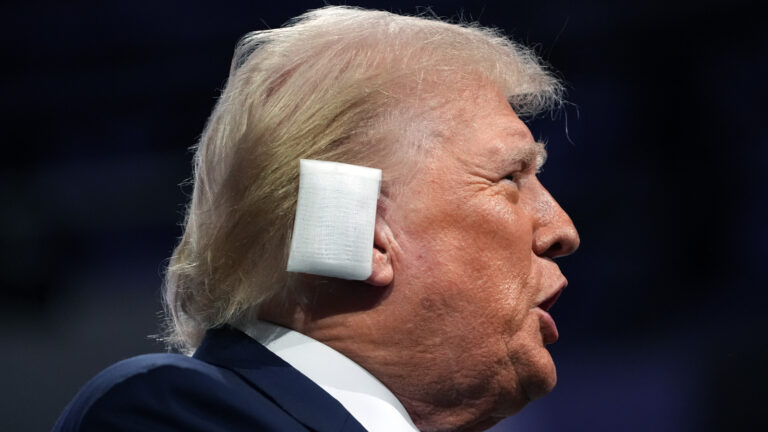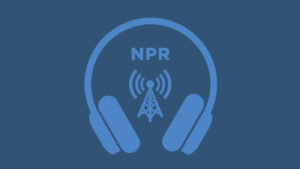A research means that deep mind stimulation can enhance focus and a focus in individuals recovering from a traumatic mind harm. This might provide a path for these dwelling with debilitating impairments.
ARI SHAPIRO, HOST:
A extreme traumatic mind harm usually causes lasting injury.
GINA ARATA: I could not get a job as a result of if I used to be, like, say, a waitress and you set in an order, I might neglect. I could not keep in mind to get you, like, a Weight-reduction plan Pepsi.
SHAPIRO: Now a small research affords hope. NPR’s Jon Hamilton experiences on how exactly focused deep mind stimulation seems to assist injured brains work higher.
JON HAMILTON, BYLINE: Gina Arata’s mind was injured when she was 22 and driving to a marriage bathe.
ARATA: I used to be, like, perhaps a minute from my home. And I simply had hydroplaned over a water puddle, and I swerved in direction of timber.
HAMILTON: Arata spent 14 days in a coma. Then got here the laborious half.
ARATA: I needed to be taught every part once more – how one can button my pants, how one can shave my legs, how one can feed myself – as a result of proper after the accident, I could not use my left aspect of my physique.
HAMILTON: Arata’s bodily skills improved, however her focus and reminiscence remained unreliable. And she or he had no filter, which was awkward when she went on dates. Fifteen years handed with little change. Throughout that point, Dr. Nicholas Schiff at Weill Cornell Medication in New York was finding out individuals with reasonable to extreme traumatic mind accidents. He observed an issue with connections to components of the frontal cortex.
NICHOLAS SCHIFF: Though the individuals had been capable of get up, have a day, stay on their very own, they could not return to highschool and work as a result of among the sources in those self same components of the frontal cortex had been unavailable to them.
HAMILTON: Which meant that they had restricted use of mind areas concerned in planning, focus and self-control. In 2007, Schiff had been a part of a workforce that used deep mind stimulation to assist a affected person in a minimally aware state turn into extra conscious and responsive. Practically a decade later, Schiff needed to see if an analogous strategy might assist individuals like Gina Arata.
SCHIFF: What we did not know, after all, was, would this work in individuals who had reasonable to extreme mind harm? And if it did principally work the best way we anticipated it to work physiologically, would it not make a distinction?
HAMILTON: To seek out out, Schiff collaborated with Dr. Jaimie Henderson, a neurosurgeon at Stanford. Henderson’s job was to implant tiny electrodes deep within the mind.
JAIMIE HENDERSON: There may be this very small, very difficult-to-target area proper in the course of a relay station within the mind referred to as the thalamus.
HAMILTON: The area performs a important function in figuring out our stage of consciousness. The workforce hoped that stimulating it might assist individuals whose brains hadn’t totally recovered from a traumatic harm. So beginning in 2018, Henderson operated on 5 sufferers, together with Arata.
HENDERSON: As soon as we put the wires in, we then took these wires as much as a pacemaker like machine that is implanted within the chest, after which that machine might be programmed externally.
HAMILTON: Henderson says total, sufferers had been capable of full a cognitive process greater than 30% quicker.
HENDERSON: Everyone received higher, and a few individuals received dramatically higher, higher than we’d actually ever anticipate with some other type of intervention.
HAMILTON: Gina Arata realized how a lot distinction her implanted stimulator made throughout a testing session with Dr. Schiff.
ARATA: He requested me to call issues within the produce aisle, and I might simply rattle them off like, ooh, lettuce, eggplant, apples, bananas. I used to be simply flying by.
HAMILTON: Then Schiff modified the setting and requested her about one other grocery retailer aisle. She could not title a single merchandise. The outcomes, which seem within the journal Nature Medication, are promising, says Deborah Little, a psychologist at UTHealth in Houston.
DEBORAH LITTLE: What this research exhibits is that they probably could make a distinction years out from harm.
HAMILTON: Little, the analysis director on the Trauma and Resilience Heart at UTHealth, says it is nonetheless not clear whether or not the strategy is possible for big numbers of sufferers. However she says whether it is, stimulation would possibly assist among the individuals who have run out of rehabilitation choices.
LITTLE: We do not have a whole lot of instruments to supply them. I get calls from sufferers from earlier research, even, who will name me and ask if there’s something new they will attempt.
HAMILTON: Little says some sufferers’ lives could possibly be modified in the event that they expertise the kind of enchancment discovered within the research.
LITTLE: Even a ten% change in perform could make the distinction between having the ability to return to your job or not.
HAMILTON: Gina Arata, who’s 45 now, hasn’t landed a job but, however she says her implanted stimulator is permitting her to do different issues like learn books and preserve relationships.
ARATA: It is on proper now. I’ve had my battery modified and upgraded. I’ve a phone to show it on and off or test the battery lifespan. It is superior.
HAMILTON: The researchers are already planning a bigger trial of the strategy. Jon Hamilton, NPR Information.
(SOUNDBITE OF JEAN CARNE SONG, “VISIONS”)
Copyright © 2023 NPR. All rights reserved. Go to our web site phrases of use and permissions pages at www.npr.org for additional data.
NPR transcripts are created on a rush deadline by an NPR contractor. This textual content will not be in its remaining type and could also be up to date or revised sooner or later. Accuracy and availability might fluctuate. The authoritative file of NPR’s programming is the audio file.























